Greatest Integer Function – Explanation & Examples When studying graphs and functions, you'll be introduced to a unique function called the greatest integer functionHere's a quick recall of the greatest integer functions' definition//googl/JQ8NysUse the Graph of f(x) to Graph g(x) = f(x) 3 MyMathlab HomeworkRemember to use quickfill to complete the table 🔗

What Is The End Behavior Of The Graph Of The Exponential Function F X B X When 0 Brainly Com
The graph of f(x)=b^x if b 1 approaches but never touches
The graph of f(x)=b^x if b 1 approaches but never touches-Solution for 1) The graph of f(x) is shown below 3 5 4 2 lim a) f(x) lim b) f(x) lim f(x) c) 4,Transcribed image text Approximate the area under the graph of f(x) and above the xaxis with rectangles, using the following methods with n=4 f(x) = x2 7 from x= 2 to x = 2 (a) Use left endpoints (b) Use right endpoints C) Average the answers in parts (a) and (b) (d) Use midpoints (a) The area, approximated using the left endpoints, is 3 f(x) = 3, from x = 1 to x = 9 х
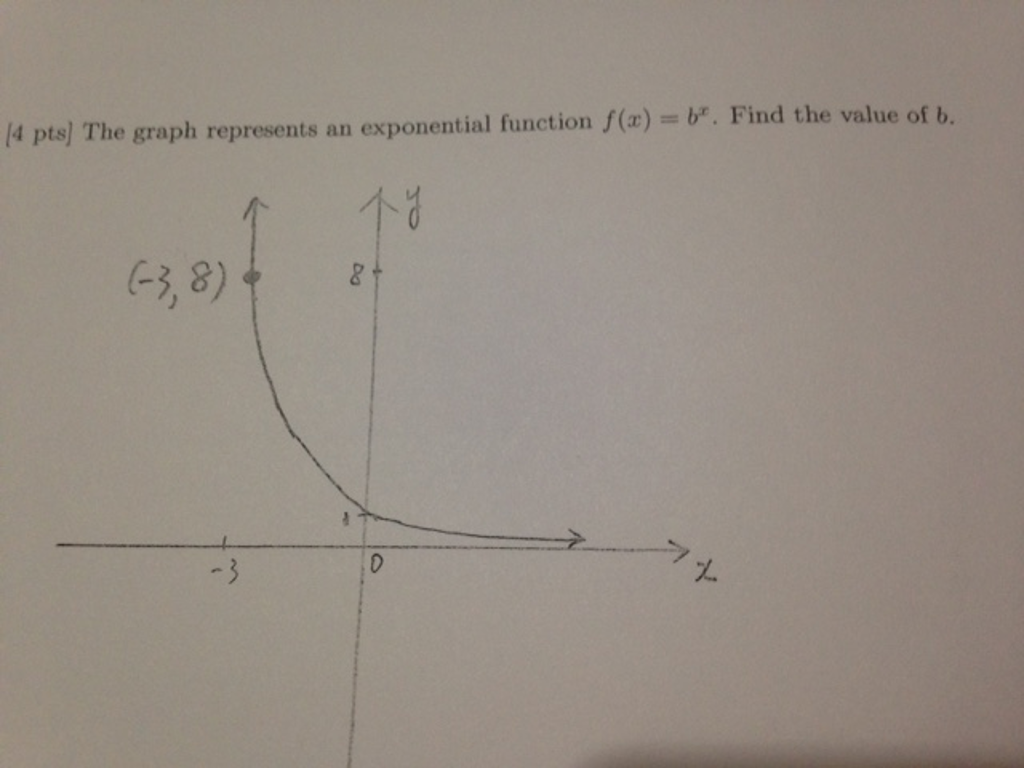



The Graph Represents An Exponential Function F X Chegg Com
For example, when B=2, the graph has a period of pi and is a reflection across the yaxis of y=sin(2x) When B=0, the graph degenerates to a line on the xaxis The period of the graph is (2pi)/B For B>0, as B increases, the period of the graph decreases For BWhich statement describes the graph of f(x) = 4x^7 40x^6 100x^5?A function can be reflected about an axis by multiplying by negative one To reflect about the yaxis, multiply every x by 1 to get x To reflect about the xaxis, multiply f(x) by 1 to get f(x) Putting it all together Consider the basic graph of the function y = f(x) All of the translations can be expressed in the form y = a * f b (xc) d
A function f(x,y) is called continuous at (a,b) if f(a,b) is finite and lim(x,y)→(a,b)f(x,y) = f(a,b) This means that for any sequence (xn,yn) converging to (a,b) we have f(xn,yn) → f(a,b) Continuity for functions of more than two variables is defined in the same wayA 0 and a only B 0 and m only C b and j only D 0, a, and b E b j, and k Page 7Angle in standard position versus bearing
Algebra Graph f (x)=b^x f (x) = bx f ( x) = b x Find where the expression bx b x is undefined The domain of the expression is all real numbers except where the expression is undefined In this case, there is no real number that makes the expression undefined The vertical asymptotes occur at areas of infinite discontinuityIM Commentary The task is an introduction to the graphing of exponential functions The first part asks students to use technology to experiment with the two parameters defining an exponential function, with little guidanceF ( x) = x2 A function transformation takes whatever is the basic function f (x) and then "transforms" it (or "translates" it), which is a fancy way of saying that you change the formula a bit and thereby move the graph around For instance, the graph for y = x2 3 looks like this This is three units higher than the basic quadratic, f (x) = x2




How To Find An Exponential Equation With Two Points




Introduction To Exponential Functions In The Form F X Ab X Part 2 Youtube
• The period is B π • Find two consecutive asymptotes by solving 2 Bx C π − = and 2 Bx C π − =− • Find an xintercept by taking the average of the consecutive asymptotesFirst week only $499!The graph of g lies farther from the axes than the graph of f Both graphs lie in the fi rst and third quadrants and have the same asymptotes, domain, and range MMonitoring Progressonitoring Progress Help in English and Spanish at BigIdeasMathcom 1 Graph g (x) = −6 — x Compare the graph with the graph of f = 1 — x LOOKING FOR
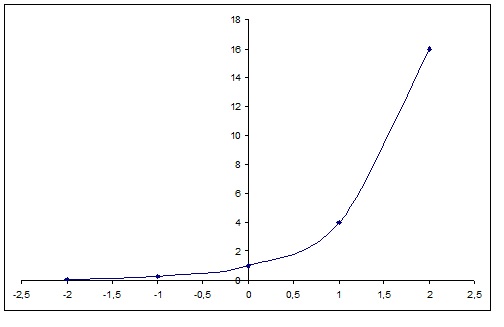



How Do You Graph F X 4 X Socratic




The Following Graphs Are Transformations Of F X X 2 Complete The Boxes Below To Describe The Brainly Com
Because we only work with positive bases, b x is always positive The values of f(x) , therefore, are either always positive or always negative, depending on the sign of a Exponential functions live entirely on one side or the other of the xaxis We say that they have a limited range The base b determines the rate of growth or decay If 0 b 1 , the function decays as x increasesExample 2 The graph of g is the transformation of f (x) = ex Find the equation of the graph of g Example 3 In 1969, the world population was approximately 36 billion, with a growth rate of 17% per year The function f (x) = 36 e 0 017 x describes the world population, f (x) , in billions, xSince f(−x) = e− (− x) 2 2 = e− 2 = f(x) and lim x→±∞ e− (−x)2 2 = 0, the graph is symmetry wrt the yaxis, and the xaxis is a horizontal asymptote • Wehave f0(x) = e−x 2 2 (−x) = −xe− x2 2 • Thus f ↑ on (−∞,0) and ↓ on (0,∞) • Atx = 0, f 0(x) = 0 Thus f(0) = e = 1 is the (only) local and




2 6 Exponential Functions Functions Siyavula




11 15 Graphing A Function Of The Form F X Ax B Fractional Slope Youtube
A function which grows faster than a polynomial function is y = f(x) = a x, where a>1 Thus, for any of the positive integers n the function f (x) is said to grow faster than that of f n (x) Thus, the exponential function having base greater than 1, ie, a > 1 is defined as y = f(x) = a x The domain of exponential function will be the set ofThe graph of an exponential function f(x) = b x has a horizontal asymptote at y = 0 An exponential graph decreases from left to right if 0 < b < 1, and this case is known as exponential decay If the base of the function f(x) = b x is greater than 1, then its graph will increase from left to right and is called exponential growthHorizontal asymptote latexy=0/latex domain latex\left(\infty , \infty \right)/latex




General Form And Graph For An Exponential Function Ppt Download




7 2 Transformations Of Exponential Functions Math 30
Question 2 Let the function y=f(x) have the graph as shown below How many extreme points does the graph of the function (g(x)=f(x2)) have?In general, the function y = log b x where b , x > 0 and b ≠ 1 is a continuous and onetoone function Note that the logarithmic functionis not defined for negative numbers or for zero The graph of the function approaches the y axis as x tends to ∞ , but never touches itAlgebra questions and answers Use the graph of f (x) = x to write an equation for the function represented by e Y 2 X B 6 4 12 6 00 V= (b) y 2 2 X 2 4 B 6 8




What Is The End Behavior Of The Graph Of The Exponential Function F X B X When 0 Brainly Com



Illustrative Mathematics
In mathematics, the exponential function is the function f ( x ) = e x, {\displaystyle f(x)=e^{x},} where the base e = 2718 is Euler's number and the argument x occurs as an exponent More generally, an exponential function is a function of the form f ( x ) = a b x, {\displaystyle f(x)=ab^{x},} where the base b is a positive real number For real numbers c and d, a function of the form f ( x ) = a b c x d {\displaystyle f(xThe graph touches the xaxis at x = 4 and crosses the xaxis at x = 1 Which statement describes the graph of f (x) = 4x3 28x2 32x 64?Logarithmic Functions The "basic" logarithmic function is the function, y = log b x, where x, b > 0 and b ≠ 1 The graph of the logarithmic function y = log x is shown (Remember that when no base is shown, the base is understood to be 10 ) Observe that the logarithmic function f ( x) = log b x is the inverse of the exponential function g ( x) = b x




Transformations Of Log Functions Ck 12 Foundation




In General The Point Is On The Graph Of The Function F X A B X Brainly Com
The features of the graph = = can be interpreted in terms of the variables x and y The y intercept is the initial value y = f ( 0 ) = b {\displaystyle y=f(0)=b} at x = 0 {\displaystyle x=0} The slope a measures the rate of change of the output y per unit change in the input x11 Start with the graph of f (x) which is pictured below a 4 pt List the transformations necessary to obtain the function (x) b 3 pt The key points on the graph of f (x) are given below What are these points transformed to on the graph of 12 The equation and graph of a piecewise function f (x) is given below if — 1 if —6ExercisesExercises 14 Graphing functions with Excel 🔗 1 Produce a worksheet that with a graph of the function , f ( x) = x 2 − 5 x, with x going from 10 to 10 by 1 Solution The entry in cell B2 is =^25*;




In The Equation Y Ab X What Does Each Symbol Mean Which Is The Initial Amount And Which Is The Growth Factor Quora




Graph A Represents The Function F X Root 3 X Graph B And Graph C Transformations Of Graph A Brainly Com
A General Note Characteristics of the Graph of the Parent Function f(x) = b x An exponential function with the form latexf\left(x\right)={b}^{x}/latex, latexb>0/latex, latexb\ne 1/latex, has these characteristics onetoone function;The parent function is f(x) = cos(x) The following transformations have been applied a = 2 (Vertical stretch by a factor of 2) b = −1 (Reflection in the yaxis) h = 90° (Translation 90° to the right) k = 8 (Translation 8 units up) Practice Questions 1 The graph of f(x) = x3 was reflected in the yaxis, compressed vertically by a factor ofHow To Given an exponential function with the form latexf\left(x\right)={b}^{xc}d/latex, graph the translation Draw the horizontal asymptote y = d Shift the graph of latexf\left(x\right)={b}^{x}/latex left c units if c is positive and right latexc/latex units if




Exponential Functions Ck 12 Foundation




Describe How The Following Functions Differ From The Chegg Com
Here's the graph of f x ( ) =tan( x)over this interval, with pertinent points marked To graph f x ( ) =Atan( Bx −C) D ;Answered (b) Graph f (x) You must show at least bartleby Calculus Q&A Library (b) Graph f (x) You must show at least one period and label all intercepts (b) Graph f (x) You must show at least one period and label all intercepts Start your trial now!Suppose f(x)=mxb and g(x)=nxc for real numbers x,m,b,n, and c Then f(x)g(x)=mxbnxc=(mn)x(bc)



Introduction To Exponential Functions
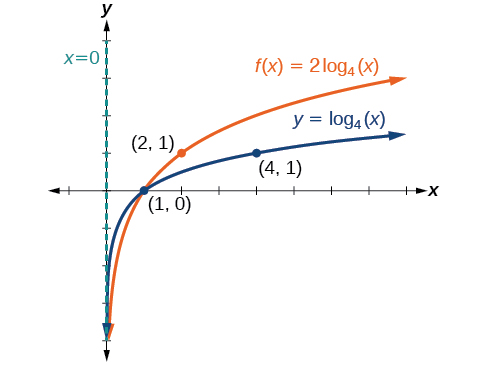



6 4 Graphs Of Logarithmic Functions By Openstax Page 5 8 Jobilize
Answer to a) State two similarities and one difference between the graphs of f(x)= 3^x and g (x)= (1/3) ^x b) What transformations must be applied to the graphSuppose f A B is a function We call f onto if the range of f equals B In other words, f is onto if every object in the target has at least one ject from the domain assigned to it by f Examples Below is the graph of f R where ( x) = 2 Using techniques learned in the chapter "Intro to Graphs", we can see that the range of f is 0,⇥) Select the correct answer Which function does this graph represent?




Logarithmic And Exponential Functions Topics In Precalculus




How To Write Equation Of Exponential Function From Graph F X A B X C Youtube
Graph and Formula of f(x) g(x) Discover Resources Algebra Assignment 408;Is, if (a,b)isapointinthegraphoff(x), then (a,b d)isapointinthe graph of f(x)d As an explanation for what's written above If (a,b)isapointinthegraph of f(x), then that means f(a)=b Hence, f(a)d = b d, which is to say that (a,bd)isapointinthegraphoff(x)d The chart on the next page describes how to use the graph of f(x)tocreateYou just studied 10 terms!
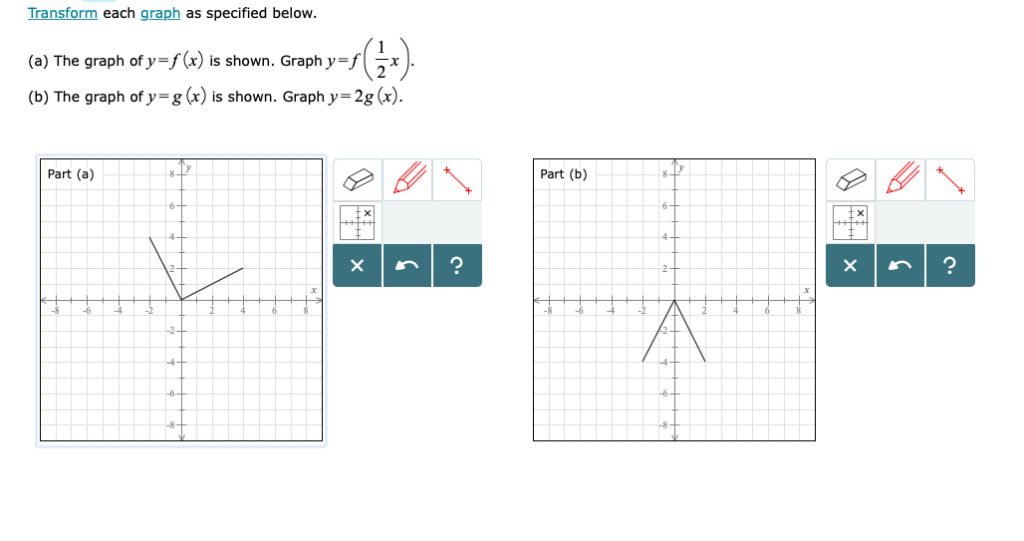



Transform Each Graph As Specified Below A The Chegg Com




The Parent Function F X X3 Is Represented By Graph A Graph A Is Transformed To Get Graph B And Brainly Com
The graphs f(y) red, g(y) green, and f(y)g(y) blue are shown So far, the sum of two linear functions is a linear funciton Is it always true that if f(x) and g(x) are linear functions, then f(x)g(x) is a linear function?The second derivative of the function f is given by f x x x a x b''( ) 2 The graph of f " is shown above For what values of x does the graph of f have a point of inflection?The graph of an exponential function is a strictly increasing or decreasing curve that has a horizontal asymptote Let's find out what the graph of the basic exponential function y = a x y=a^x y = ax looks like (i) When a > 1, a>1, a > 1, the graph strictly increases as x
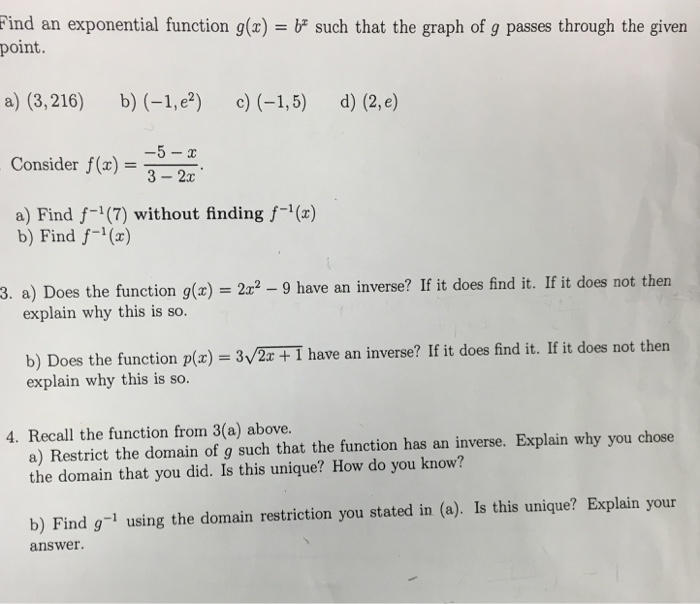



Find An Exponential Function G X B X Such That The Chegg Com
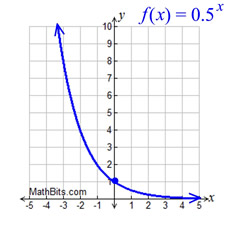



Exponential Functions Mathbitsnotebook A1 Ccss Math
Question 1 Given a definite and continuous function y=f(x) on the segment 2;3 and whose graph is the curve in the figure belowConsider the following function and its graph f(x) = x x2 x Use the graph to determine the limit visually (if it exists) (If an answer does not exist, enter DNE) (a) 1 lim ( ) x f x (b) 0 lim ( ) x f x (c) Write a simpler function that agrees with the given function at all but one point 8Graph B represents f (–x) Affiliate Given the function f (x) = x 2 x – 3, find the function statements, in simplified form, for the reflection of the function in each of the x and yaxes Label the reflections appropriately Well, "appropriately" is a little vague;




The Graph Represents The Function F X 10 2 X How Would The Graph Change If The B Value In The Brainly Com




Sinusoidal Graphs Y A Sin B X C D A Plus Topper
A The graph crosses the xaxis at x = 0 and touches the xaxis at x = 5 B The graph touches the xaxis at x = 0 and crosses the xaxis at x = 5 C The graph crosses the xaxis at x = 0 and touches the xaxis at x =Answer to f ( x ) = 8 x 1 (b) Graph both f and f 1 on the same set of coordinate axes By signing up, you'll get thousands of stepbystepThe graph crosses the xaxis at x = 0 and touches the xaxis at x = 5 Which statement describes the graph of f (x) = 4x7 40x6 100x5?




Definition Of A Logarithmic Function For X 0 And B 0 B 1 Y Log B X Is Equivalent To B Y X The Function F X Log B X Is The Logarithmic Function Ppt Download
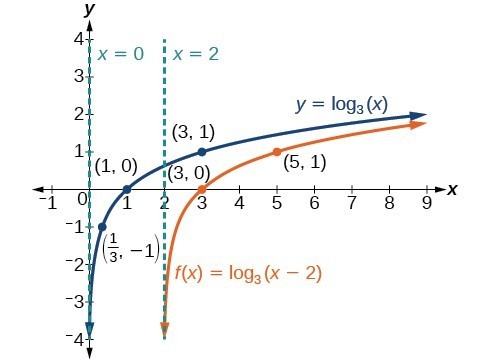



Horizontal And Vertical Shifts Of Logarithmic Functions College Algebra
In other words, f(x) = ax b is increasing on ( − ∞, ∞) If a < 0, the graph of the line falls as x increases In this case, f(x) = ax b is decreasing on ( − ∞, ∞) If a = 0, the line is horizontal Figure 111 These linear functions are increasing or decreasing on (∞, ∞) and one function is(a) Estimate the area under the graph of f(x) = 5 cos(x) from x = 0 to x = π/2 using four approximating rectangles and right endpoints (Round your answers to four decimal places)Before we begin graphing, it is helpful to review the behavior of exponential growth Recall the table of values for a function of the form f (x) = b x f (x) = b x whose base is greater than one We'll use the function f (x) = 2 x f (x) = 2 x Observe how the output values in Table 1 change as the input increases by 1 1
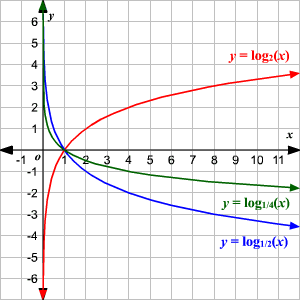



Domain And Range Of Exponential And Logarithmic Functions




Functions And Linear Equations Algebra 2 How To Graph Functions And Linear Equations Mathplanet
I'll just be sure the label everything very clearlyA f(x) = 3(x 1)2 2 B f(x) = 3(x 1)2 2 C f(x) = 3(x 1)2 − 2 D f(x) = 3(x − 1)2 2Exponential functions of the form f(x) = bx appear in different contexts, including finance and radioactive decay The base b must be a positive number and cannot be 1 The graphs of these functions are curves that increase (from left to right) if b > 1, showing exponential growth, and decrease if 0 < b < 1, showing exponential decay
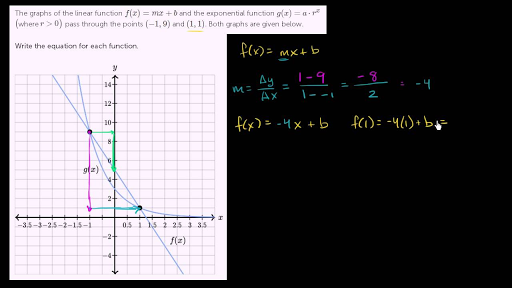



Writing Exponential Functions From Graphs Algebra Video Khan Academy




Determine Where F X G X From The Graph A X 2 X 2b X 2 X 0 X 2c X 0 X Brainly Com
On the graph of a line, the slope is a constant The tangent line is just the line itself So f' would just be a horizontal line For instance, if f (x) = 5x 1, then the slope is just 5 everywhere, so f' (x) = 5 Then f'' (x) is the slope of a horizontal linewhich is 0 So f'' (x) = 0 See if you can guess what the third derivative is, orGraph f(x)=x Find the absolute value vertex In this case, the vertex for is Tap for more steps To find the coordinate of the vertex, set the inside of the absolute value equal to In this case, Replace the variable with in the expression The absolute valueAngles around a transversal;
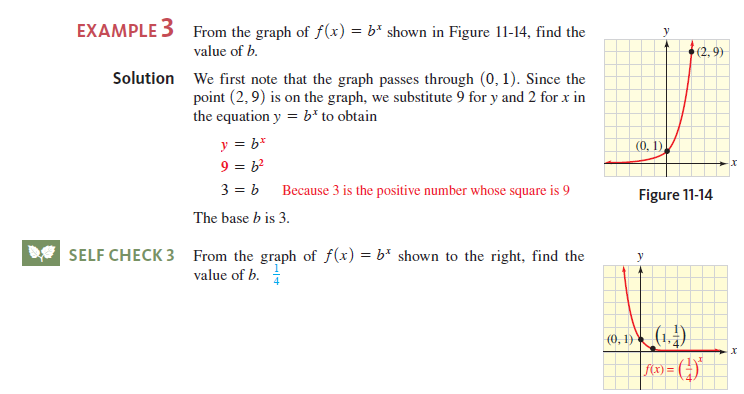



Solved Find The Value Of B That Would Cause The Graph Of F X B Chegg Com



Illustrative Mathematics
Please Subscribe here, thank you!!!
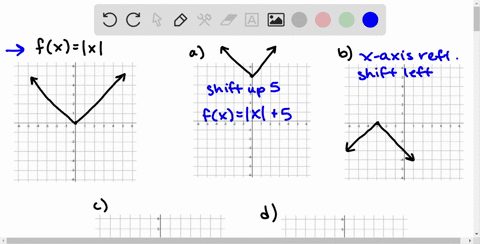



Solved Use The Graph Of F X X 3 To Write An Equation For Each Function Whose Graph Is Shown




If F X 2x 3 And G X X 6 Use The Graph To Find The Solution To The Equation F X Brainly Com
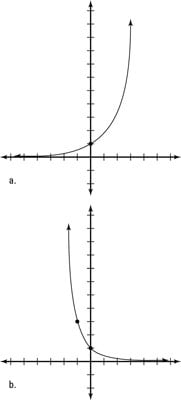



How To Graph And Transform An Exponential Function Dummies
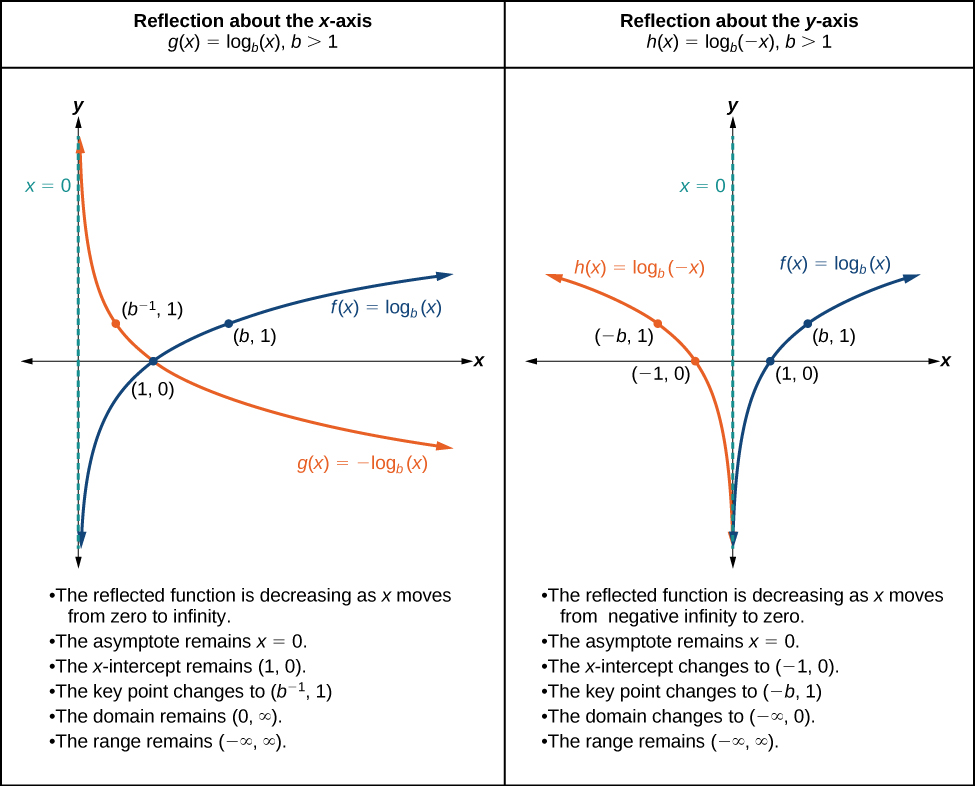



Graphs Of Logarithmic Functions Algebra And Trigonometry



1




How To Graph An Exponential Function And Its Asymptote In The Form F X A B X Study Com
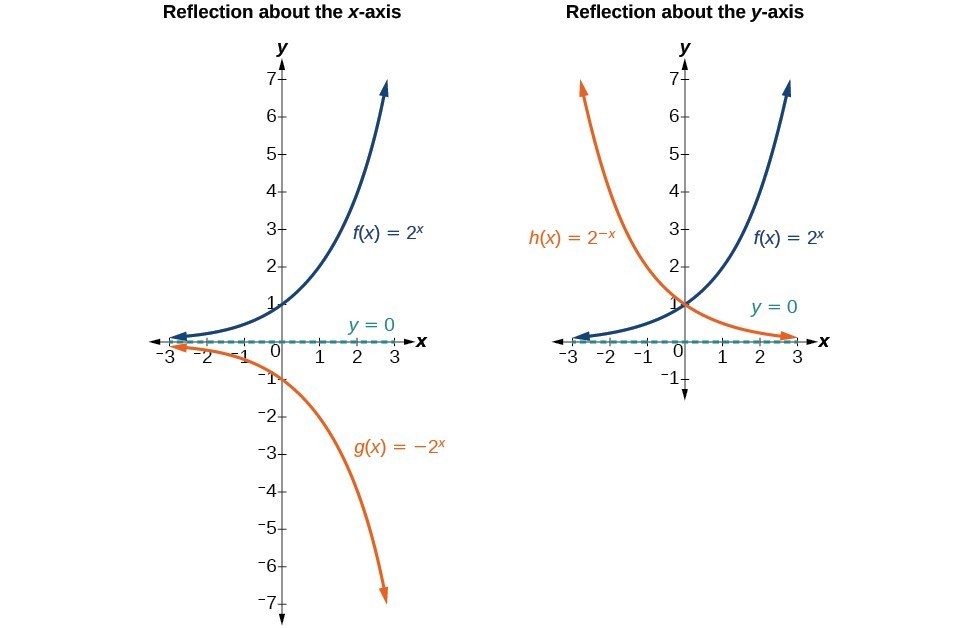



Stretching Compressing Or Reflecting An Exponential Function College Algebra




Exponential Functions Definition Of The Exponential Function The Exponential Function F With Base B Is Defined By F X B X Or Y B X Where B Is A Ppt Download




Writing Exponential Functions From Graphs Algebra Video Khan Academy



1




Exponential Functions Section 4 1 Definition Of Exponential Functions The Exponential Function F With A Base B Is Defined By F X B X Where B Is A Ppt Download
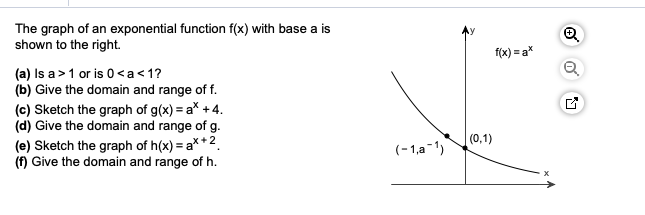



The Graph Of An Exponential Function F X With Base A Chegg Com
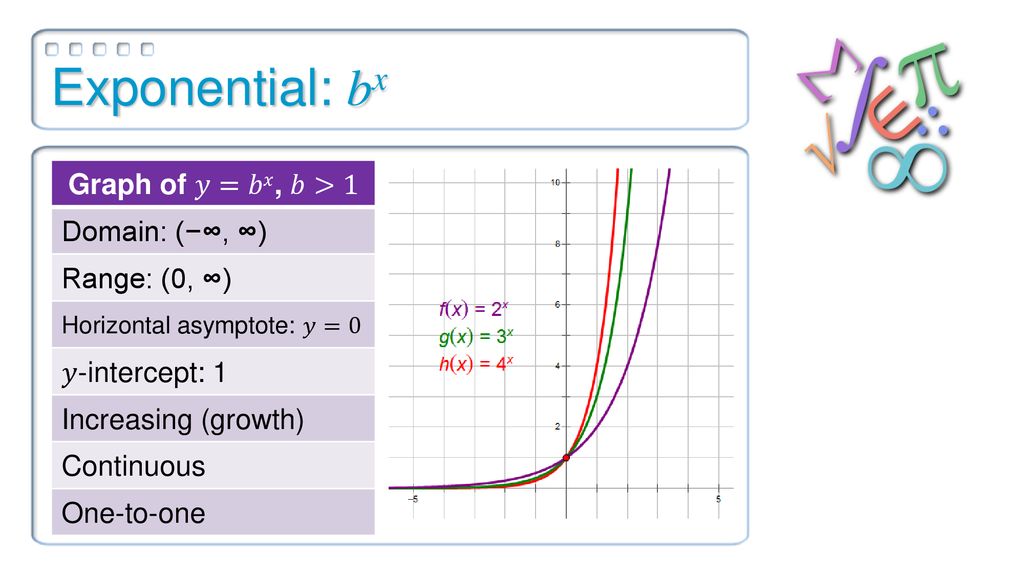



Exponential Functions Ppt Download



Solution Consider The Linear Function F X A X B C Discuss All The Changes In The Graph As A B And C Change From Positive Negative Zero As Well As Grow Smaller Or Larger Discuss The Do
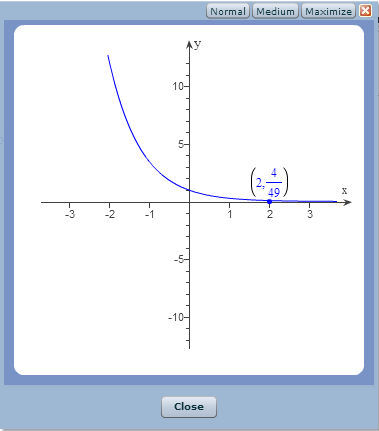



Determine The Correct Exponential Function In The Chegg Com




Finding The Equation Of A Transformation From The Graph Youtube
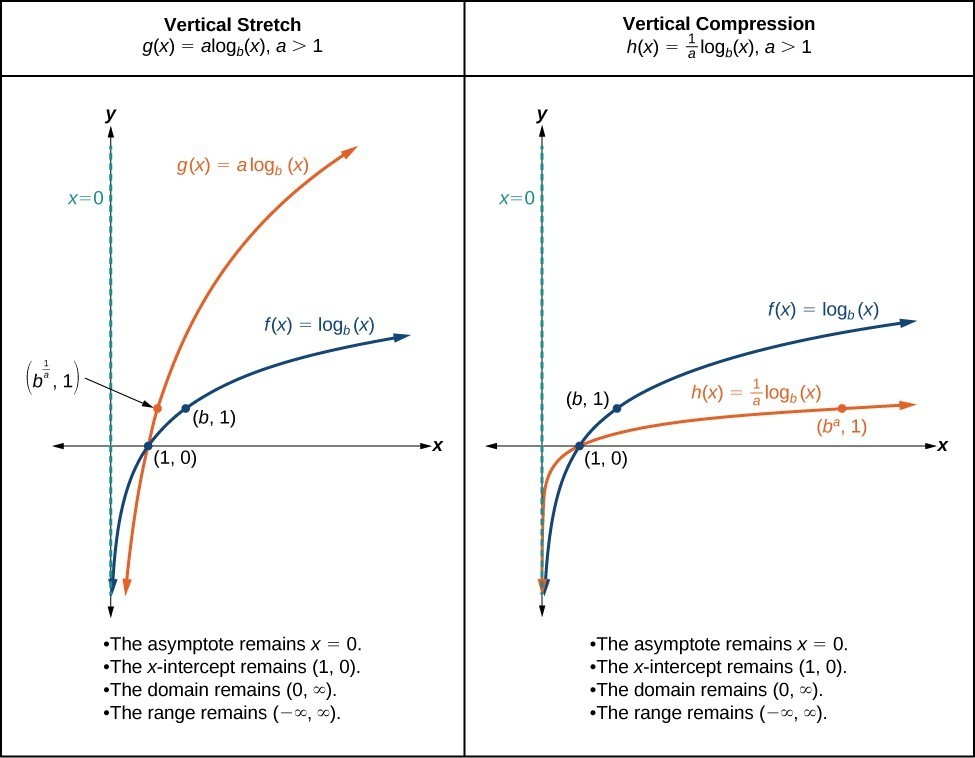



Stretching Compressing Or Reflecting A Logarithmic Function College Algebra
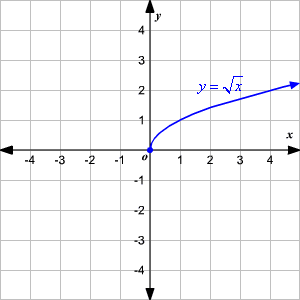



Graphing Square Root Functions
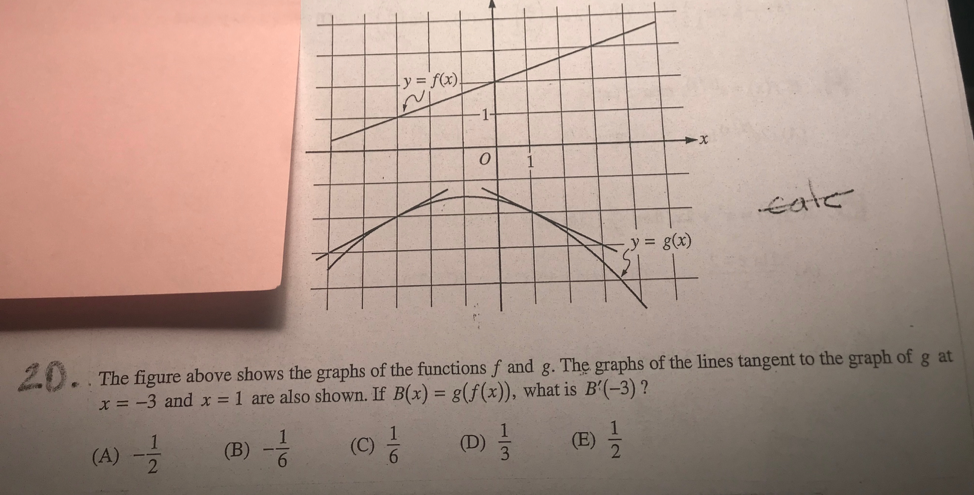



The Figure Above Shows The Graph Of The Functions F Chegg Com
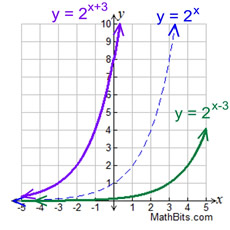



Exponential Functions Mathbitsnotebook A1 Ccss Math




Graph Of A Function Emathzone




What Is The Value Of A For The Exponential Function In The Graph Represented In The Form Of Brainly Com




Exponential Functions A Simple Guide To Exponential Logarithmic And Inverse Functions




The Graph Of The Function F X X 2 4x 6 Is Shown Here What Is Its Axis Of Symmetry A X 0 Brainly Com
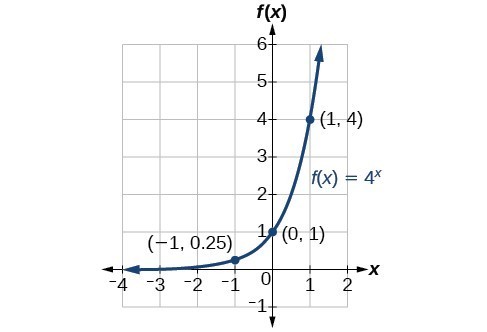



Solutions 22 Graphs Of Exponential Functions Precalculus I
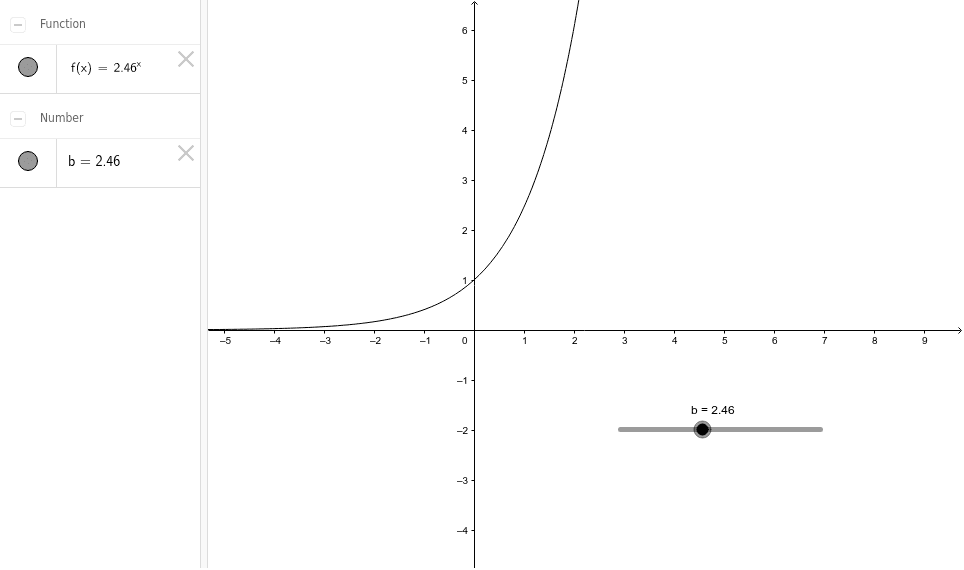



Graph Of Y B X Geogebra
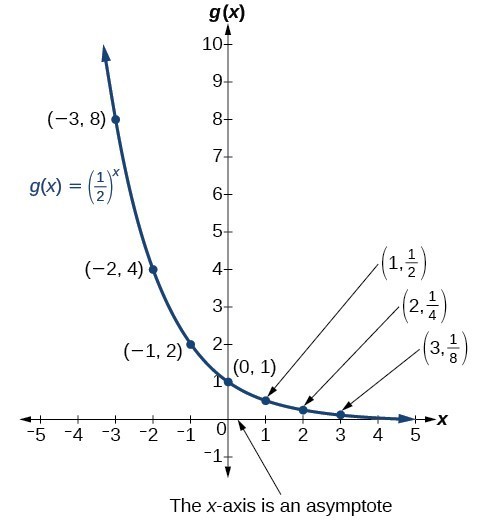



Graph Exponential Functions College Algebra




Ex Find An Exponential Function Given Two Points Initial Value Not Given Youtube
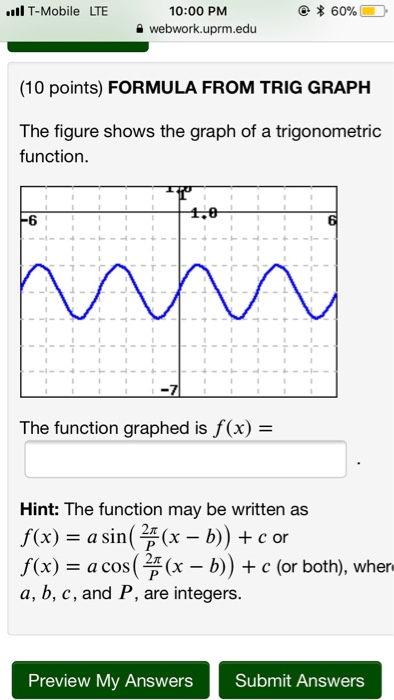



Find A Function Of The Form 𝑓 𝑥 𝐴 Chegg Com




Finding The Marked Values Of X On A Graph Mathematics Stack Exchange
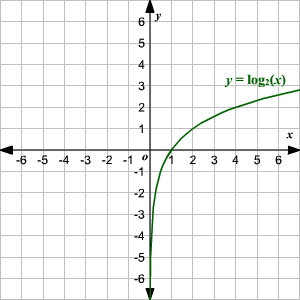



Graphing Logarithmic Functions
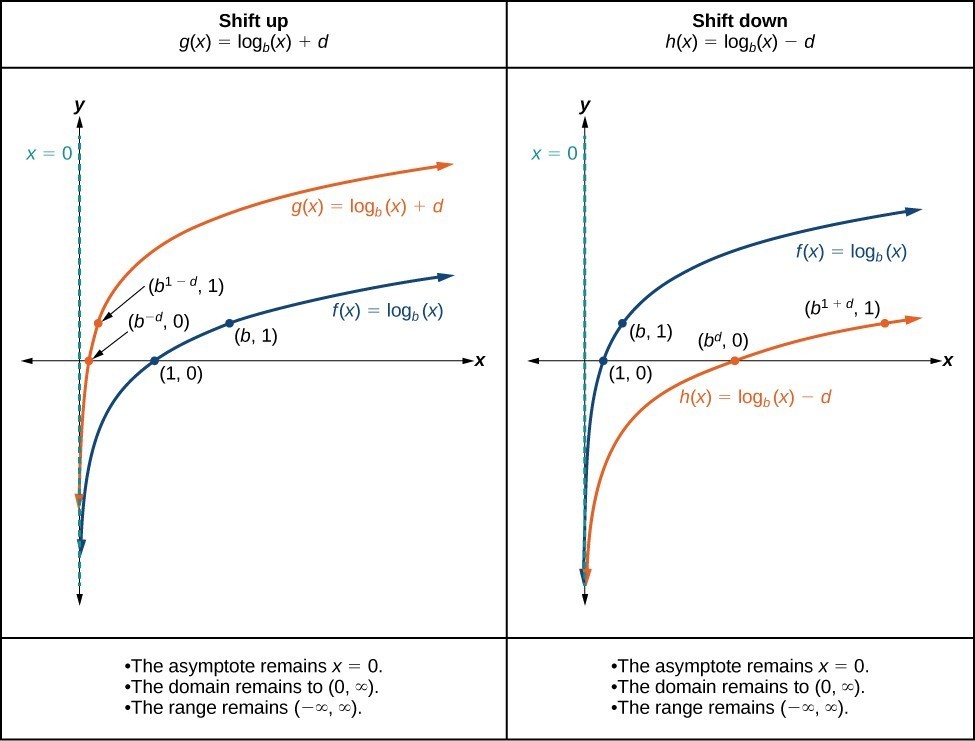



Graphing Transformations Of Logarithmic Functions College Algebra




The Graph Represents An Exponential Function F X Chegg Com




How To Graph An Exponential Function And Its Asymptote In The Form F X A B X Study Com
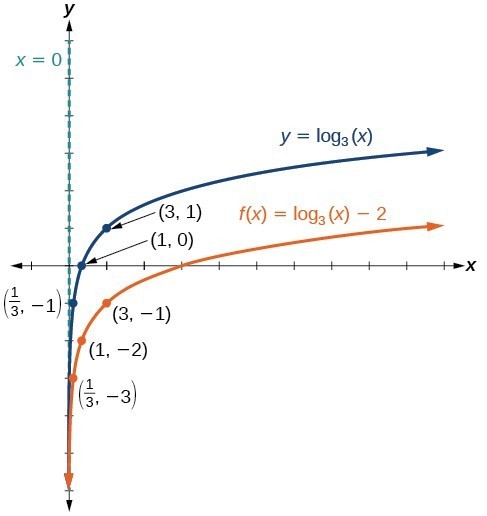



Horizontal And Vertical Shifts Of Logarithmic Functions College Algebra




The Exponential Function H Whose Graph Is Given Below Can Be Written Ash X A B Xcomplete The Brainly Com



Use The Graph Below To Determine The Right Hand Limit Of The Function F X At A X 8 B X 6 Math Homework Answers



The Graph Of The F X Is Show Below Graph Each Transformed Function And List In Words The Transformation Used Socratic




Graph Of F X X A X B X C X D For A Download Scientific Diagram




2 The Function Y F X Is Transformed To Become The Chegg Com
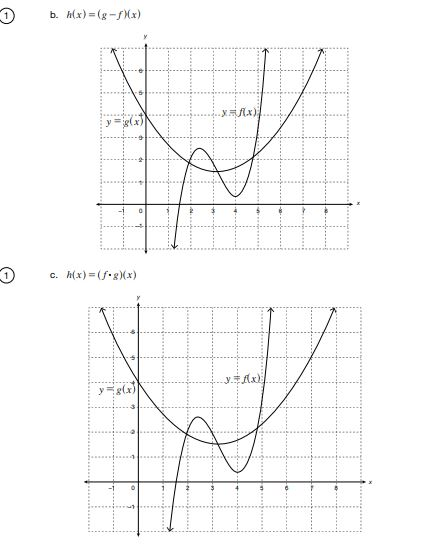



1 1 Use The Graphs Of Y F X And Y G X To Chegg Com




Graph A Linear Function As A Transformation Of F X X Youtube




6 31 2 Y 2 1 1 Point 6 5 4 3 The Graph Of F X Chegg Com



Solved Use The Graph Below To Determine The Right Hand Limit Of The Function F X At Course Hero



Introduction To Logarithmic Functions




Exponential Functions Have The Form Fleft Xright Bx Where B 0 And Bneq 1 Using The Definition Above The Domain Of An Exponential Function Is The Set Of All Real Numbers The Range Is The



1
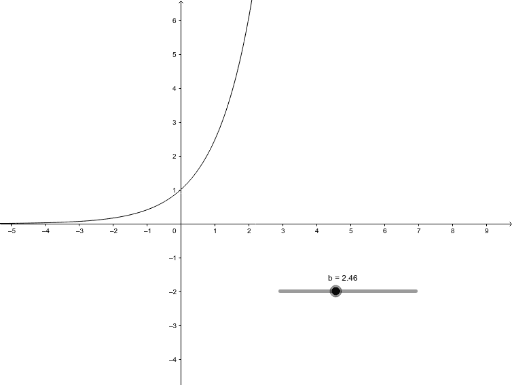



Graph Of Y B X Geogebra



Http Www Math Wsu Edu Math Staff Cjacobs Instructor Files Cjacobs 106 Logarithmicfunctionskey Pdf




Exponential Functions Ck 12 Foundation
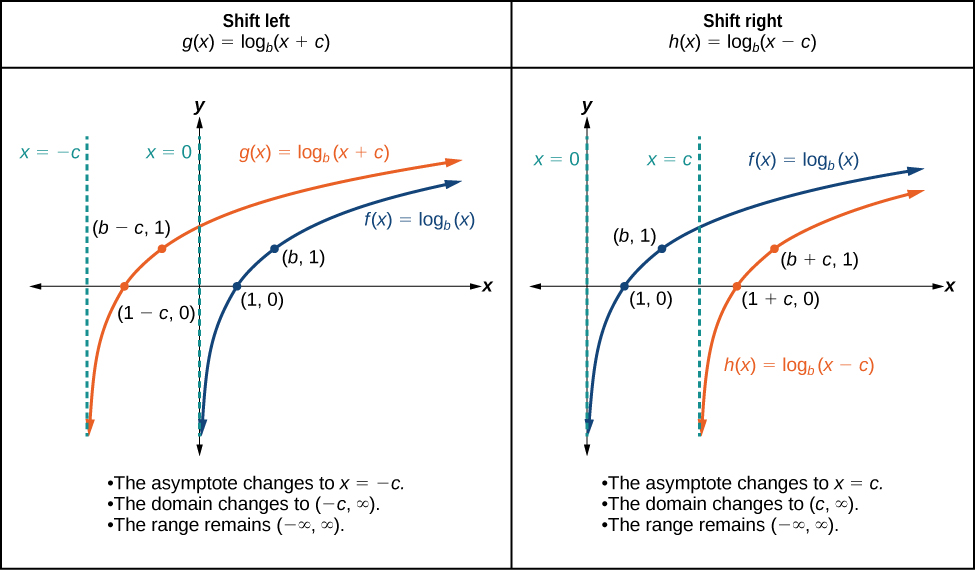



Graphs Of Logarithmic Functions Algebra And Trigonometry
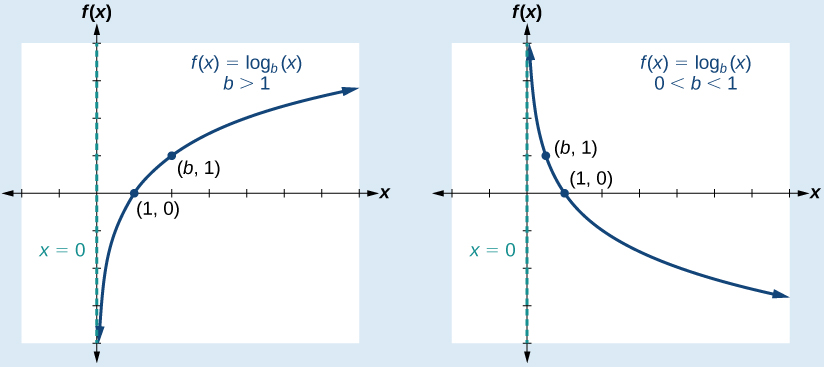



Graphs Of Logarithmic Functions Algebra And Trigonometry




5 Graphs Of Rational Functions Of The Form F X Ax B Cx D Math 4 U
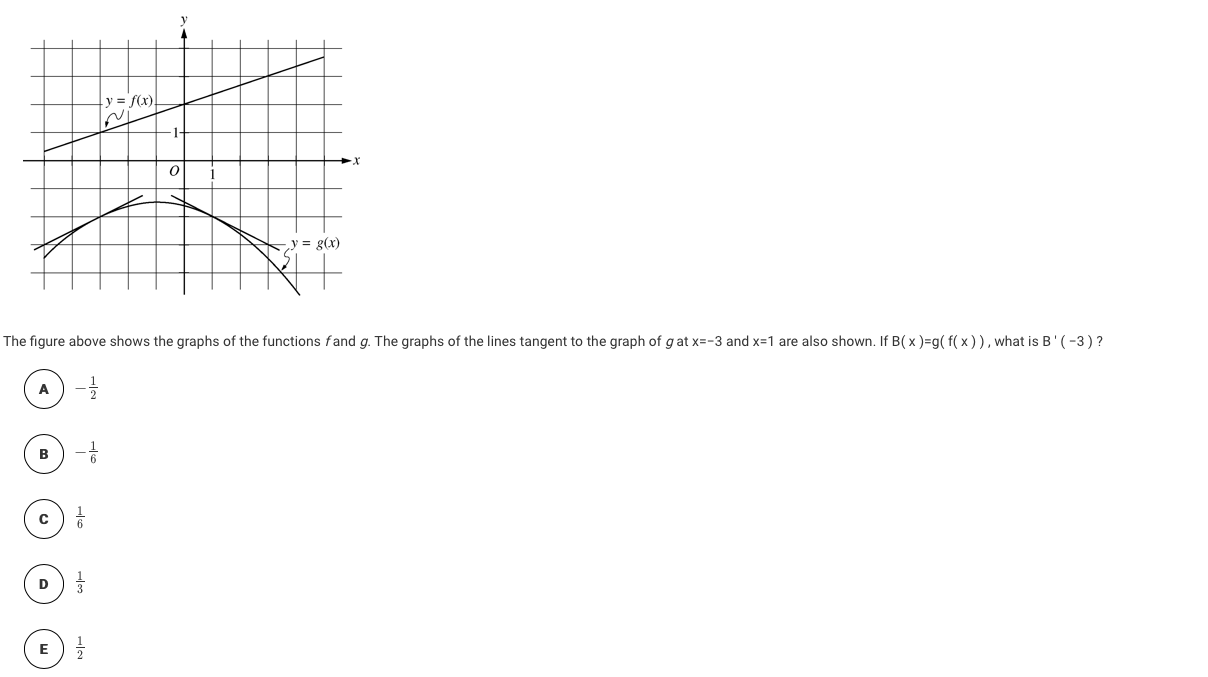



Y F Xl Y G X The Figure Above Shows The Graphs Chegg Com
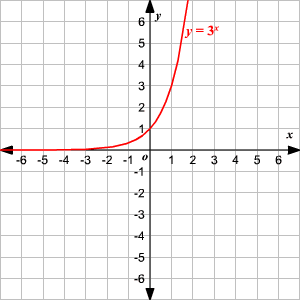



Graphing Logarithmic Functions




Graphs Of Exponential Functions Ck 12 Foundation



6 2 Graphs Of Exponential Functions College Algebra With Corequisite Support Openstax Cnx
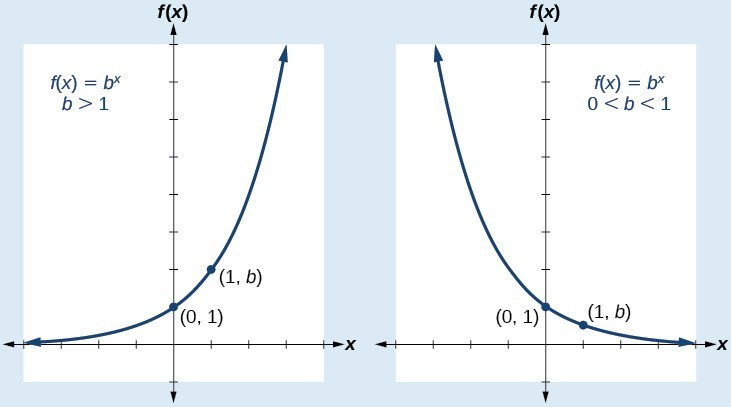



Graph Exponential Functions College Algebra



6 4 Graphs Of Logarithmic Functions Algebra And Trigonometry Openstax Cnx
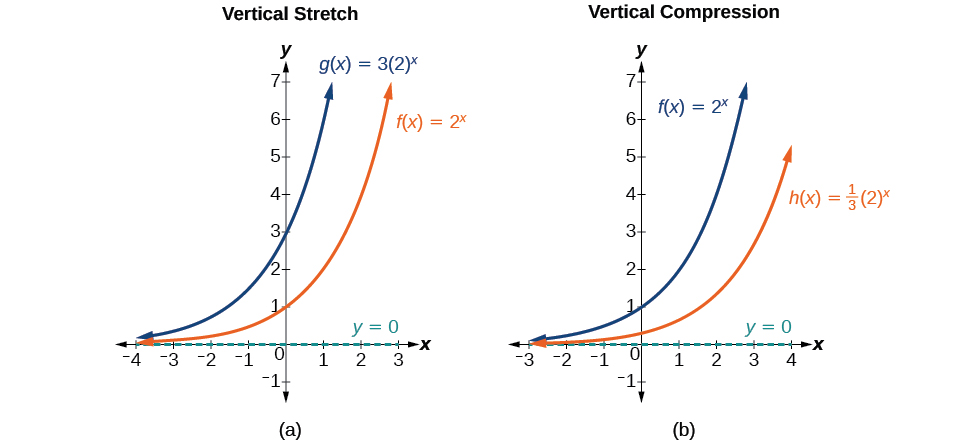



Graphs Of Exponential Functions Algebra And Trigonometry



4 1 Algebra 2 Study Site




A Boat S Value Over Time Is Given As The Function F X And Graphed Below Use A X 400 B X 0 As Brainly Com




8 3 Graphing F X Ax 2 Bx C Youtube



1
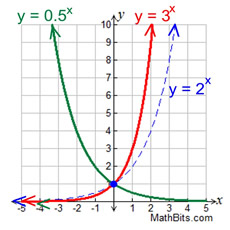



Exponential Functions Mathbitsnotebook A1 Ccss Math




A The Graph Ofy F X Is Shown Graph Y 2f X B The Graph Of Homeworklib
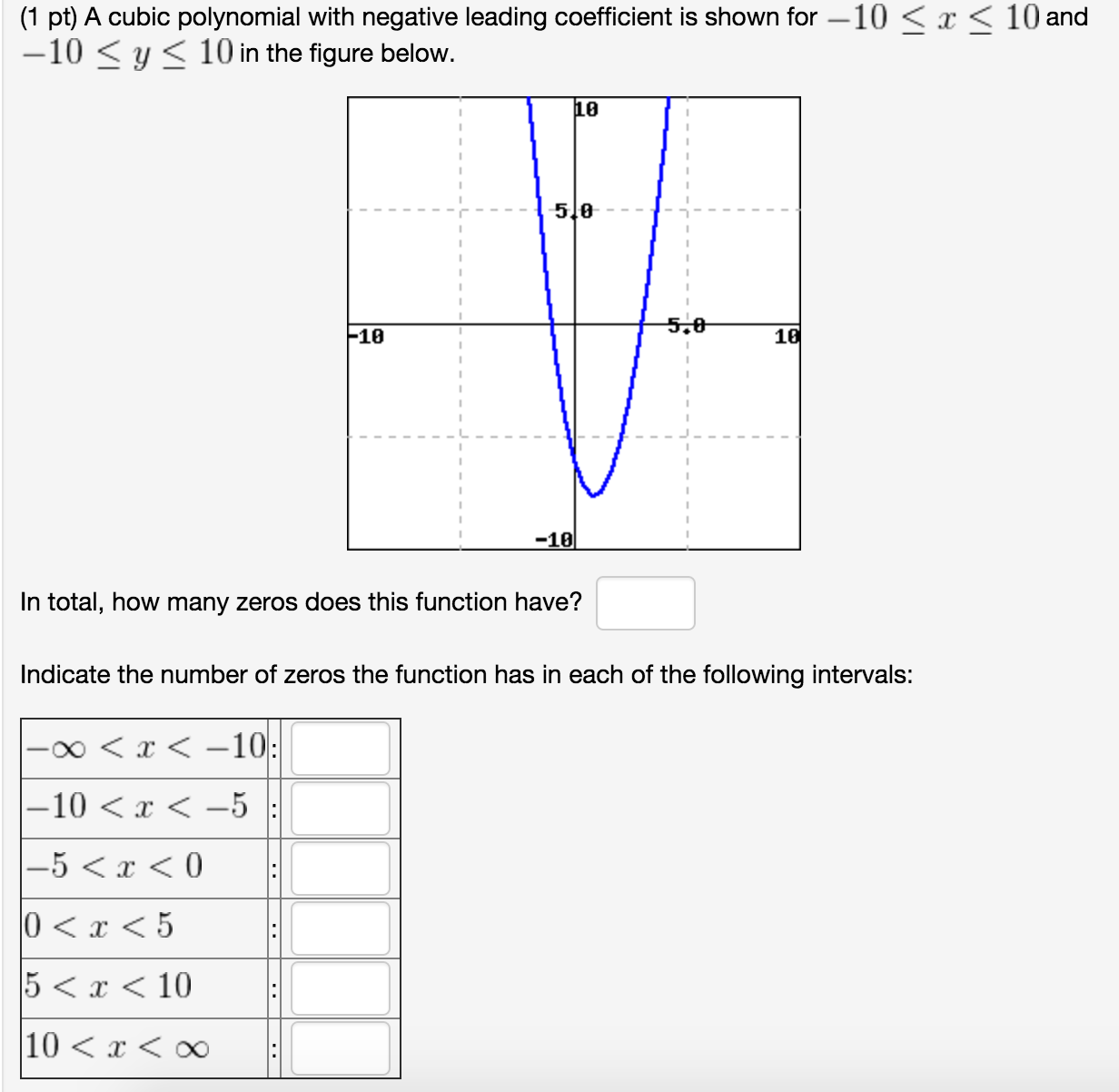



The Graph Below Is A Polynomial Function In The Form Chegg Com
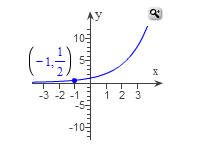



Determine The Correct Exponential Function Of The Chegg Com




Why Are There Two Different Types Of Graph For Logarithmic Functions Log A X For Different Range Of Base I E For 0 A 1 And A 1 Mathematics Stack Exchange




Exponential Functions Definition Of The Exponential Function The Exponential Function F With Base B Is Defined By F X B X Or Y B X Where B Is A Ppt Download



No comments:
Post a Comment